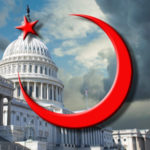By Alyssa A. Lappen
FrontPageMagazine.com | September 20, 2005
When Ontario Premier Dalton McGuinty announced on Sunday September 11 that Ontario would outlaw all forms of religious arbitration, including Islamic law or Shari’a, Western civilization won a great victory. For that success, Canada and the U.S. owe their thanks to Iranian exile Homa Arjomand, director of the International Campaign Against Sharia Court (ICASC).
Arjomand sprang into action in December 2003, when McGuinty appointed former Ontario Attorney General Marion Boyd to review the province’s Arbitration Act. Since 1991, this law allowed Ontario courts to pass family and business legal disputes on to religious bodies. McGuinty was responding to the Islamic Institute for Civil Justice (IICJ), which applied to arbitrate civil cases in the Muslim community according to Shari’a.
From then until December 2004, when Boyd proposed instituting Shari’a law in Muslim family arbitrations, Arjomand devoted every leisure moment to defeating this measure. “We can stop it,” she said last year, despite her fear that Pakistani, Iranian, and Saudi Arabian governments backed the IICJ push for Shari’a rule in Ontario’s family courts.
This diminutive naturalized Canadian citizen understands the hardships of activism in ways that most Westerners cannot fathom. Arjomand was motivated by personal experience. She describes herself “as a person who lost all her friends” to Shari’a rule in Iran, then fled for her life on foot. Within the first five years of Iranian revolutionary rule, Arjomand says, the government executed more than 150,000 people under the Shari’a law. “I knew 2,000 to 3,000 people who were killed,” she says today, “including my closest friends. These were the activists, the ones who organized hospital workers, [who agitated for] safety and health [and] children’s rights, who were all arrested. Within the first two days, there were mass executions. According to the United Nations, these are not lies. The papers are there.”
“To be an activist in Iran is not a piece of cake,” she explains. “In Iran, [having] a computer is a crime, they want to find out why you have it. Even a typewriter is a crime. Even searching for anything that makes copies, you are arrested. They would name you anti-Islam, and anyone [who] is kafir [an infidel] deserves to die. Women who were arrested were gang raped. They wanted to make sure you would go to Hell. If women were executed as virgins they would go to heaven and they wanted [women] to go to Hell.”
Given her experience with religion and religious rule, Arjomand’s passionate position is not hard to understand. “I want religion to be a private matter,” she says. “Religion must be completely separate from the state.”
Arjomand also understands the insidious nature of Shari’a through her work as a counselor for a Toronto agency that helped more than 120 Muslim women so far in 2005, many of them fleeing from abusive marriages and physical assault. She is informed by the point of view of poorly educated immigrant women with little ability to navigate Canada’s legal system.
“Canadians think, this is your culture, you deal with it. But it is the government’s duty to protect the vulnerable, including women and children,” she says.
As recently as the week before McGuinty’s decision, Ontario women were fighting for their rights to civil representation. One Muslim woman from Toronto, tried for months to wring a divorce out of her local imam, finally obtained a divorce under Shari’a — even though her husband had abandoned the family four years before and married another woman in South Asia, where polygamy is legal. The imam agreed only after she agreed to pay $5,000 (which she was forced to borrow) and to forgo all future compensation from her ex-husband. “Women in Ontario should definitely not have to rely on Shari’a and mullahs and imams to resolve family disputes. People have to know what is going on,” said the woman, who felt anger and betrayal when she finally obtained her talaq.
Under Arjmand’s leadership, protests organized against Shari’a law proposal in major Canadian cities, and as far away as Paris, London, and Vienna. Critics understood that allowing Islamic tribunals could lead to discrimination against women. They also feared setting a precedent in the West: the recommendation poised Ontario to become the first Western jurisdiction to allow Shari’a law.
Today, Arjomand is rejoicing. But her fight is far from over.
“Together we have defeated the forces of ‘Political Islam’ in Ontario, but this is just the first step,” she proclaims on her website. “We must not stop here, we need to continue the fight and assist people in other countries who live under the burdens of Shari’a and Political Islam — countries such as England, India, Iran, Iraq, Netherlands and Nigeria — the people there are counting on us.”
Alyssa A. Lappen is a freelance journalist who frequently contributes to FrontPageMagazine and other online journals.
All Articles, Poems & Commentaries Copyright © 1971-2021 Alyssa A. Lappen
All Rights Reserved.
Printing is allowed for personal use only | Commercial usage (For Profit) is a copyright violation and written permission must be granted first.





